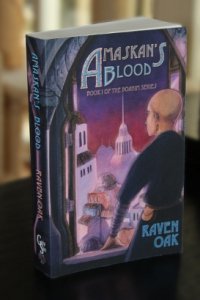
Reading makes you smarter. Let’s go ahead and assert that as fact. Research actually indicates that there is a direct correlation between reading and intelligence. For that reason alone, you should be reading fantasy.
Beyond that however, what’s so special about reading fantasy, specifically? And how does it make you smarter?
By experiencing different worlds and living life through the eyes of another, it makes us more imaginative and aware. It brings inspiration and shapes our realities. Think of the intelligence you would gain if you could literally live other people’s lives – the experiences of hundreds of others, accessible for you to see and learn from. Reading fantasy actually affords you that ability. And the mythical and magical elements involved make it that much more fun along the way.
So, here they are. 4 reasons why reading fantasy makes you smarter:
Reading fantasy”¦
1. Cultivates imagination
Perhaps the biggest thing to be had from reading fantasy is the cultivating of the imagination. The power of the imagination cannot be understated. It opens the door to creativity and passion, as well as innovation and invention. These outcomes result in a world far more interesting than simple black and whites, yes and no’s. They are the keys to unlocking an infinity of as-of-yet undiscovered combinations and results. There is plenty of scientific evidence on why imagination makes you smarter, but try it for yourself! Who knows what you might come up with?
2. Makes you more aware
Those who cannot imagine consequences are doomed to discover them. Reading fantasy allows you to gain an extra perspective on life, which leads to increases in awareness, and greater awareness only leads to intelligence. When you read fantasy, you observe natural cause and effect relationships, even within stories of a fantastic nature. Seeing this cause and effect relationships allows you to become more adept at living with such consequences in mind, and overall, make you a smarter person.
3. Leads to inspiration
Inspiration can come from anywhere, but it often comes a lot quicker when you immerse yourself in that area of interest you find yourself pursuing. If you want to be a writer, you need to read a lot and write a lot. If you’re a musician, you need to practice. It is only first through the rigidity of discipline that the fluidity of genius finds its roots. Fix that discipline of reading fantasy to find your genius in inspiration. In his book, On Writing, Stephen King writes, “Your job is to make sure the muse knows where you’re going to be every day from nine ’til noon. Or seven ’til three. If he does know, I assure you that sooner or later he’ll start showing up.” The fluidity of genius finds its roots.
4. Shapes your reality
Let’s face it: At times, reality can be dull. This is especially true when you have a set routine throughout your week. Fantasy allows you to jump out of that routine and into a completely different world. Who wouldn’t take advantage of this varied range of experiences to be had?
A word of warning here: You don’t want to live completely in a fantasy world either though. Like everything, there’s a balance. Make sure that you stay grounded. Fantasy is fun, interesting, exciting, and many more things, but it’s still fantasy. As long as you keep that in mind, you’ll be all right.
So there it is. Reading fantasy not only makes you smarter, but it makes you a better person overall. So get out there, find a book, and take advantage!
Find J.T. Gill at his website or on Twitter as @jt3_gill.
Want to write your own guest post? Here’s the guidelines.
#sfwapro
Enjoy this writing advice and want more content like it? Check out the classes Cat gives via the Rambo Academy for Wayward Writers, which offers both on-demand and live online writing classes for fantasy and science fiction writers from Cat and other authors, including Ann Leckie, Seanan McGuire, Fran Wilde and other talents! All classes include three free slots.









14 Responses
One through four: Because stupid republicant xtian morons can’t do it. http://t.co/tV71Ith28e
Cat Rambo: Guest Post from J.T. Gill: Cultivating Imagination ““ 4 Reasons Why Fantasy Makes You Smarter http://t.co/CttpAaD0U5
RT @Catrambo: 4 Reasons Why Fantasy Makes You Smarterhttp://www.kittywumpus.net/blog/?p=7161
RT @Catrambo: 4 Reasons Why Fantasy Makes You Smarterhttp://www.kittywumpus.net/blog/?p=7161
Raven Oak liked this on Facebook.
Gene Stewart liked this on Facebook.
RT @Catrambo: 4 Reasons Why Fantasy Makes You Smarterhttp://www.kittywumpus.net/blog/?p=7161
Crystal Leflar liked this on Facebook.
RT @SFWAauthors: Cat Rambo: Guest Post from J.T. Gill: Cultivating Imagination ““ 4 Reasons Why Fantasy Makes You Smarter http://t.co/CttpAa“¦
Tonya Liburd liked this on Facebook.
Tamara Vining liked this on Facebook.
Danielle Myers Gembala liked this on Facebook.
David Dezotell liked this on Facebook.
Wayne Rambo liked this on Facebook.